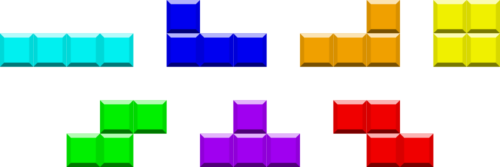
Standing in line at the coffee shop. That crowded subway ride. A few minutes of solitude, wherever you can grab them. In these small moments, we hide away from the business of life to play Candy Crush, Tetris, Solitaire, or engage in some other mindless, electronic distraction. But as a mindfulness practitioner, I’ve noticed that, in addition to providing a deserved break from my to-do list, a short round of mobile gaming often brings me peace of mind.
There are plenty of educational games and apps to use as a distraction, and even games designed to help you practice mindfulness. But even games that weren’t created for mindfulness can be leveraged for good (in moderation) with the right intention. They can calm our brains, support a positive outlook on life, and have the same effects as silent meditation or other mindfulness practices. Benefits include objectivity, mental clarity, self-control and enhanced flexibility.
Here are four mindfulness benefits that I’ve discovered can arise alongside phone game play:
Mindfulness benefit: objectivity and the joy of reward
At work, there are days when the thrill of success makes my whole world sparkle, and there are days when disappointment reigns. When a project isn’t going right, I have a hard time releasing the feeling of impending doom, even if it’s because of an average-sized bump in the road. But something as small as winning a game on my phone often restores some of my confidence. Unexpectedly making it to the next level of a game gives a feeling of achievement, bringing a surge of the neurotransmitter dopamine, which helps control the brain’s reward and pleasure centers. This can support motivation, and actually increase my desire to go out and engage with the world (or jump back into that challenging project). I choose a game like 2048 for a few minutes of fun; the simple satisfaction of sliding numbers together and watching them add up is strangely powerful. (See this article in Psychology Today about why Candy Crush is dominating our lives.)
Mindfulness benefit: mental clarity through non-attachment
When the days and week fill up with tasks, events, chores, bills, attempts at making time for making plans–I sometimes ask myself, when did life get so complicated? And then I jump into a few rounds of Solitaire. Playing a game by yourself may not be as fun as competitive play with others, but the low stakes can help you detach from the pressure to win. It can help you lighten up and feel in control when life is heavy and feels anything but manageable. One study even shows that winning can ease physical pain.Try this: play a few rounds and whether you win or lose, wipe the slate clean without any judgement. Even if you’re stuck in Solitaire with no possible moves, a new deck is just a click away. Similar to the Buddhist practice of non-attachment (and a popular Hebrew folk saying) the takeaway is the same: a reminder that “this too shall pass.”
Mindfulness benefit: self-control through balance
Speaking of low stakes, I often look to games for an escape, usually from boredom or stress. While some fear that the game will draw the user into addiction, some games have built-in systems to keep your gaming disciplined. My favorite game, Toy Blast (similar to Candy Crush, you remove matching colors and shapes in order to ‘save’ the toys) only give you 5 “lives” (chances at play) at a time. After five losses, you need to wait 30 minutes in order to get back in the game. Then it’s your decision: take a break, or buy (literally, with real dollars) more “lives.” Like many games, it’s rigged to encourage you to keep playing and eventually help pay for the game’s advertising, so if you need the extra few minutes of escape, you fork over a few bucks to be able to continue play. Or maybe we could interpret this limited play structure as a sign from the universe that you need a break from gaming.
Mindfulness benefit: flexibility through self-compassion
Sometimes daily tasks can feel overwhelming and urgent: but mobile games can be an opportunity to dream big and then royally fail (think filling a Tetris window in under 10 moves) without consequence. The reset button is always there! Bonus: unlike games of the past that make you go back to the first level, most of today’s games (Candy Crush, Farm Heroes, etc.) let you just wait (by putting down your phone or switching to another app) to “grow another life” (see #3) and start again from where you left off. Slaying at Tetris won’t help you cross off items on your to-do list, but it might give you the burst of energy and self-compassion you need to jumpstart these lagging tasks. It can also be a reminder that, when we feel like we are failing at simple tasks, hitting reset is just a button away.

A Mindfulness Medley
For people who want to cultivate mindfulness, I suggest a medley of disciplines: Yoga, tai chi, qigong, and meditation can cultivate awareness and balance that can bring many emotional, psychological, and even spiritual benefits. But while mobile gaming isn’t a substitute for mindfulness practices, when played in moderation and with intention, it can serve as a restorative tool, to give you the energy and motivation you need.


Grok Nation Comment Policy
We welcome thoughtful, grokky comments—keep your negativity and spam to yourself. Please read our Comment Policy before commenting.